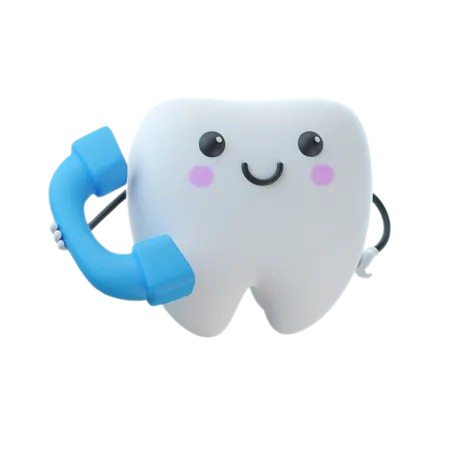Oil pulling—a traditional Ayurvedic procedure that involves swishing a tablespoon of oil like coconut, sesame, sunflower, or olive around in the mouth for 10–20 minutes—is back in the dental world after moving from folklore to TikTok trend and back again. Where are we with the evidence in 2025, and what are UK dentists telling their patients who inquire if they should begin every morning pulling? Here’s a straightforward and up-to-date view that considers the evidence base with typical dental advice.
What recent science actually shows
More stringent trials and reviews have emerged in recent years. A randomized trial in 2025 examined the impacts of sesame-oil pulling over eight weeks and observed statistically significant reductions on plaque indices, supporting a potential modest benefit for oil pulling in conjunction with usual oral care.
A systematic review in 2024 examined the evidence and concluded there is probable benefit regarding oil pulling for gum (gingival) health overall, but that standard antimicrobial mouthwashes — specifically chlorhexidine reduce plaque and bacterial counts more effectively than oil. The reviewers highlighted that overall certainty is low for all evidence, as many trials are small and varied in design.
Longer systematic reviews (2020-2022) similarly concluded oil pulling could reduce overall oral bacterial counts and modestly improve gingival scores, but all noted concerns over methods, follow-ups, and participant numbers, meaning results should be interpreted very carefully.
Smart Strategies for Protecting Your Mouth and Heart
Caring for your mouth is simple—and it benefits your heart, too:
Brush & Floss Daily: Brush twice with fluoride toothpaste and floss once to remove plaque and food.
Use Antimicrobial Rinses: Reduce harmful bacteria and gum inflammation.
See Your Dentist Twice a Year: Professional cleanings help prevent gum disease and bacteria buildup.
Eat a Healthy Diet: Choose high-fiber, antioxidant-rich foods and omega-3s.
Avoid Tobacco: A leading cause of gum disease and heart problems.
Stay Active: Exercise lowers inflammation and supports oral and heart health.
Why dentists remain cautious
UK dental professionals generally view oil pulling as a complement — not a replacement — for proven hygiene routines. The British Dental Journal has long warned against exaggerated claims (for example, detoxifying the whole body or curing systemic diseases) and urges caution with unsupported marketing narratives.
Clinicians in the UK tend to give three practical messages:
Brush twice daily with fluoride toothpaste and clean between teeth daily — that’s still the bedrock of preventing decay and gum disease. NHS guidance focuses on these actions rather than alternative rinses.
If you enjoy oil pulling and it motivates you to care for your mouth, it’s unlikely to be harmful when done sensibly — but don’t stop flossing, brushing, or seeing your dentist. Healthline
If you have dental work that could be affected by vigorous swishing (loose restorations, some orthodontic appliances), ask your dentist first.
The UK press, patients and misinformation
Since 2023–24 oil pulling has featured heavily in consumer press and social media in the UK — often presented with bold health claims. Journalists and clinicians in outlets such as The Independent and The Irish Times have urged readers to interpret the science carefully and to treat oil pulling as an adjunct rather than a cure-all. UK dentists quoted in those pieces reflect the mainstream stance: promising but not proven for headline-grabbing claims like “toxin removal” or systemic detox.
A 2025 content-analysis study also flagged how short-form video platforms can both popularise oil pulling and spread misleading claims — a reminder that online enthusiasm is not a substitute for trials with standardised methods.
Practical, evidence-minded guidance (what UK dentists tell patients)
If you’re curious about trying oil pulling, here’s a dentist-approved approach:
Use it as a complement, not a substitute. Keep brushing twice daily with fluoride toothpaste, clean between teeth daily, and attend regular check-ups. nhs.uk
Choose an edible oil you tolerate (coconut and sesame are the most studied). Don’t swallow the oil after swishing — spit into tissue then the bin (oils can solidify and block drains). Colgate
Keep expectations realistic: you may see reduced oral bacterial counts and modest improvements in gingival scores, but oil pulling is unlikely to whiten teeth dramatically or prevent cavities on its own.
If you have dentures, implants, loose fillings or devices, check with your dentist — gentle technique matters.
Conclusion
The evidence for oil pulling in 2025 is stronger than it was a decade ago. A small but growing number of randomized trials and reviews suggest modest benefits to oral health — particularly for reducing gingival inflammation and total bacterial counts. However, high-quality evidence is still limited when it comes to proving that oil pulling prevents cavities or can replace standard antiseptic mouthwashes.
Leading dental professionals in the UK, including our team at Kaa Dentals, recommend viewing oil pulling with an open yet cautious approach. If oil pulling appeals to you as a natural, low-risk addition to your routine, most dentists in Tredegar agree it’s fine to include — as long as it complements, rather than replaces, daily brushing, flossing, and regular professional check-ups.
At Kaa Dentals, we encourage balanced, evidence-based oral care and are always happy to discuss natural options that work alongside proven dental practices..
FAQ's
Oil pulling may offer modest benefits, such as reducing plaque and gum inflammation when used alongside regular brushing and flossing. However, research shows it should not replace fluoride toothpaste or professional dental care.
Yes, oil pulling is generally safe for most people when done gently and sensibly. Dentists recommend using it as an additional step, not a substitute, and avoiding vigorous swishing if you have dental work or sensitive gums.
No. Oil pulling cannot replace brushing with fluoride toothpaste, flossing, or antimicrobial mouthwash. NHS and UK dental guidance still prioritise these proven methods for preventing cavities and gum disease.


